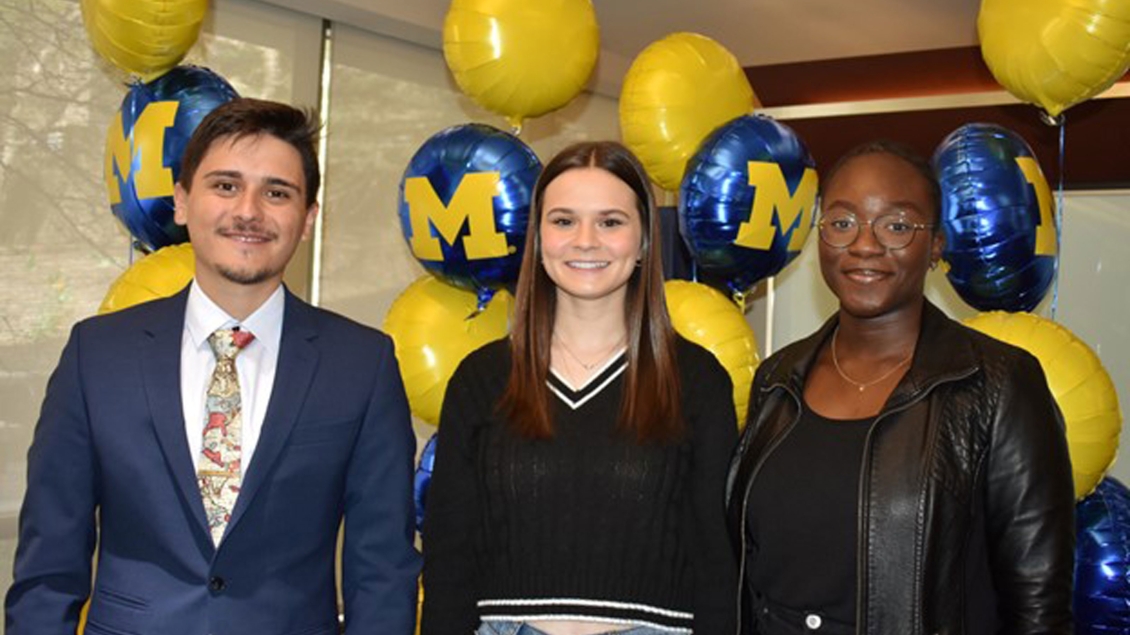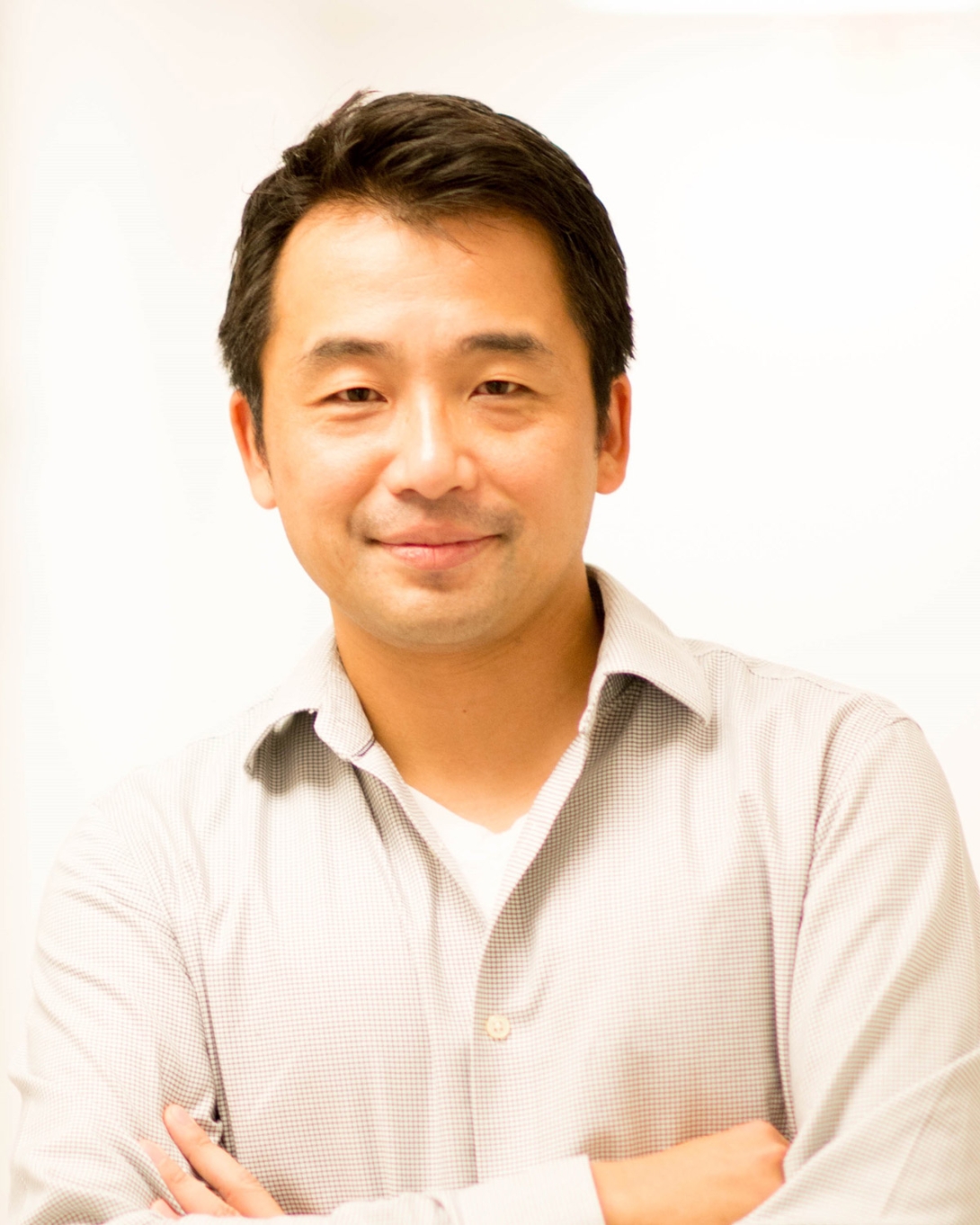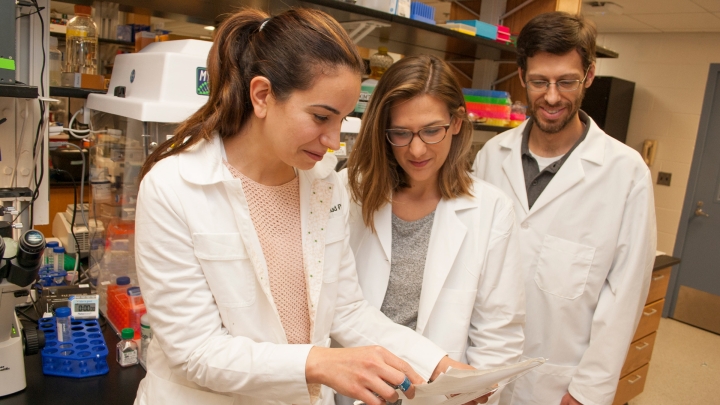
Human Genetics is a rapidly advancing field in medicine discovering new technologies, new data, and new resources to better understand human disease. It interfaces with multiple research and clinical disciplines and offers new opportunities in basic science, clinical diagnostics, and industry.
The U-M Medical School Department of Human Genetics's MS program is designed for individuals seeking to learn about cutting-edge genetics and genomics topics, advanced training in genetics research experience, critical thinking skills, and scientific communication skills through focused graduate training in all major areas of human genetics.
100% of our graduates successfully achieve their academic and career goals, including faculty or research positions in academics and industry, and employment or matriculation to PhD, MD, or other advanced degree programs.
The application deadline for International students is March 15th; April 1st for domestic applicants. Successful applicants for the M.S. Degree Program in Human Genetics will generally have a GPA of 3.0 or higher, but admission decisions will be based on the total package of GPA, research and other relevant experience, statement of purpose and personal statement. GRE scores are not required for Fall 2024 applications.
Prerequisites and Admission Requirements:
- Undergraduate degree: B.S. or B.A. Most students major in biology, biochemistry, chemistry, physics mathematics or related field, although this is not an absolute requirement *
- Transcripts documenting coursework in biology, biochemistry, statistics, and genetics
- TOEFL scores for applicants from non-English speaking countries
- Three letters of recommendation, at least one from faculty of a science course
- Academic Statement of Purpose and Personal Statement
- Resume or CV
The course of study in either track supports the development of critical thinkers, as students learn from world-renowned leaders in the field of human genetics. Students enjoy multiple opportunities for close mentorship by these experts, as well as the ability to take electives in related departments within the Medical School and elsewhere in the U-M Medical School community. Our MS Program offers two tracks: a coursework track and a research-only track.
Students can complete the Master’s Program in 2-4 semesters or can extend their program over a period of time. Successful completion of the MS Program requires a minimum of 24 credit hours of coursework or coursework plus research credits. More information is outlined below.
Coursework Track
A non-research, course-oriented track that is most suitable for applicants interested in matriculating to medical, law, or other professional programs. Students in this track typically matriculate in the Fall term and complete coursework during Fall and Winter terms.
Research Track
The research track allows graduate students to learn from and contribute to ground-breaking research being performed within the department. Students in this track typically matriculate in the Summer or Fall concurrent, with acceptance into the laboratory of a faculty mentor in Human Genetics. Students will take courses and conduct 7-10 hours of laboratory research in HUMGEN 800 during the Fall and Winter terms culminating with acceptance of a written M.S. thesis to be completed in the summer term.
Fall Term
- HUMGEN 545 Molecular, Cellular, and Organismal Genetics (3cr)
- HUMGEN 821 Student Seminar (1 cr.)
- HUMGEN 800 Research and/or Other Electives* (5 cr.)
Winter Term
- HUMGEN 546 Genetics in Human Biology and Disease (4 cr.)
- HUMGEN 822 Student Seminar (1 cr.)
- HUMGEN 551 Computational Genomics (3 cr.), BIOINF 524 Foundations for Bioinformatics (3 cr.), or similar (with approval)
- HUMGEN 803 Current Topics in Genetics (2 cr.)
- HUMGEN 800 Research and/or Other Electives* (5 cr.)
Spring/Summer Terms
- Finish research and write thesis (HUMGEN 800 credits as needed)
- HUMGEN 545 Molecular, Cellular, and Organismal Genetics (3 cr.)
- HUMGEN 546 Genetics in Human Biology and Disease (4 cr.)
- HUMGEN 803 Current Topics in Genetics
- HUMGEN 821 Student Seminar
- HUMGEN 822 Student Seminar
- HUMGEN 551 Computational Genomics (3 cr.), BIOINF 524 Foundations for Bioinformatics (3 cr.), or similar (with approval)
Additional classes that are not on this list will be considered based on the student’s interest. Research credits are counted towards the 24 credit hours requirement.
- BIOINF 527 Introduction to Bioinformatics and Computational Biology
- BIOINF 528 Structural Bioinformatics
- BIOLCHEM 550 Macromolecular Structure & Function
- BIOLCHEM 591 Signal Transduction
- BIOLCHEM 640 Regulatory RNA
- BIOLCHEM 650 Eukaryotic Transcription and Epigenetics
- BIOSTAT 601 Probability & Distribution Theory
- BIOSTAT 602 Biostatistical Inference
- BIOSTAT 666 Statistical Models & Numerical Methods in Human Genetics
- CANCBIO 554 The Science of Cancer
- CDB 530 Cell Biology
- CDB 581 Developmental Genetics
- CDB 582 Stem Cells to Regenerative Biology
- EPID 516 Genetics in Epidemiology
- HUMGEN 630 Genetics
- HUMGEN 650 Medical Genetics
- MICRBIOL 607 Microbial Pathogenesis
- MICRBIOL 615 Viral Pathogenesis
- MICRBIOL 619 Special Topics in Microbiology & Immunology
- MICRBIOL 640 Molecular & Cellular Immunology
- PATH 581 Tissue, Cellular & Molecular Disease
- PHRMACOL 502 Introduction to Scientific Communication
- PHYSIOL 555 Method & Logic in Biomedical Science
- STATS 425 Introduction to Probability
- STATS 426 Introduction to Theoretical Statistics
- STATS 500 Statistical Learning I: Regression
- STATS 503 Statistical Learning II: Multivariate Analysis
Each academic year we welcome MS students who follow either the research track or the course track of training.
Learn more about our research publications and current areas of research.
Our program is designed for students who wish to gain knowledge in human genetics and methods of inquiry about issues affecting human health and medicine.
The Master’s degree provides a knowledge base that will enhance your competitiveness for applications for (a) graduate degrees such as PhD, MD, or JD, (b) employment in academic research, industry, clinical diagnostics or (c) public service.
For full-time students, the degree requirements can be completed within a calendar year. However, part-time study is also available which would extend the length of training to include additional semesters of study.
Our curriculum is designed to offer individualization based on a student’s own interest and goals. There is flexibility with regards to the length of study, the elective coursework, and the laboratory in which research track students choose to conduct their thesis work.
No. We make no distinction in our admissions process between in-state, out-of-state, or international applicants.
Transcripts are examined to confirm that the prerequisite courses have been successfully completed. Specifically, this will include:
- An upper level human genetics course (generally this means a 300-400 level course, even though the title may include the word ‘introduction’)
- Biochemistry (one semester is sufficient and each university will have different science prerequisites for enrollment in biochemistry
- A general, introductory statistics course. In addition, we will be interested in the courses taken within your major and electives taken in other areas. If you are presently enrolled in a course that would qualify as a prerequisite and won’t therefore appear on your official transcript, be sure that this is brought to our attention. In short, we look at all years and all courses taken.
The three letters of recommendation should provide input from people in responsible positions who can comment on your academic, employment, or volunteer performance, character, and interests. For undergraduates this often means professors, academic advisors, or employers. Letters from people who really know you, rather than just from people who have impressive titles, are the most valuable.
Your academic statement of purpose should include information about your academic preparation for the Master’s program and any research experiences you may have had. Also, include a description of your career goals and discuss how the Human Genetics M.S. program can help you achieve those goals. If you are applying for the research track, please list the faculty you are most interested in working with for your thesis research and describe why their research program interests you. This is a platform for you to convey why you are a good fit for the program and vice versa.
The personal statement should include information about the factors that motivated you to pursue a Master’s degree in Human Genetics. If you have had any personal experiences or challenges that influenced your academic performance, professional development or career path you can describe them here. This statement provides an opportunity to describe your personal journey that led to the decision to pursue the M.S. degree and highlight what makes you unique from other applicants.
Not necessarily. We look at each applicant’s transcript and total application to determine their suitability for acceptance. We take into account elements such as demonstrated improvement over the course of an undergraduate career, with particular focus on grades from prerequisite science courses. In addition, admission decisions will be based on the total package of GPA, GRE (MCAT, etc.) scores, research or other relevant experience, the statement of purpose and the personal statement and letters of recommendation.

Associate Professor of Human Genetics
Associate Chair
Department of Human Genetics and Program Director
Human Genetics


Our interdisciplinary research in human genetics provides diverse opportunities to explore the genetic foundations of health and disease.

We create a supportive environment that enhances creativity, collaboration, productivity and personal satisfaction.

We find a new reason to love Ann Arbor nearly every day — year-round outdoor activities, cultural experiences, a growing food scene, and a welcoming, family-friendly atmosphere are just a few that come to mind.